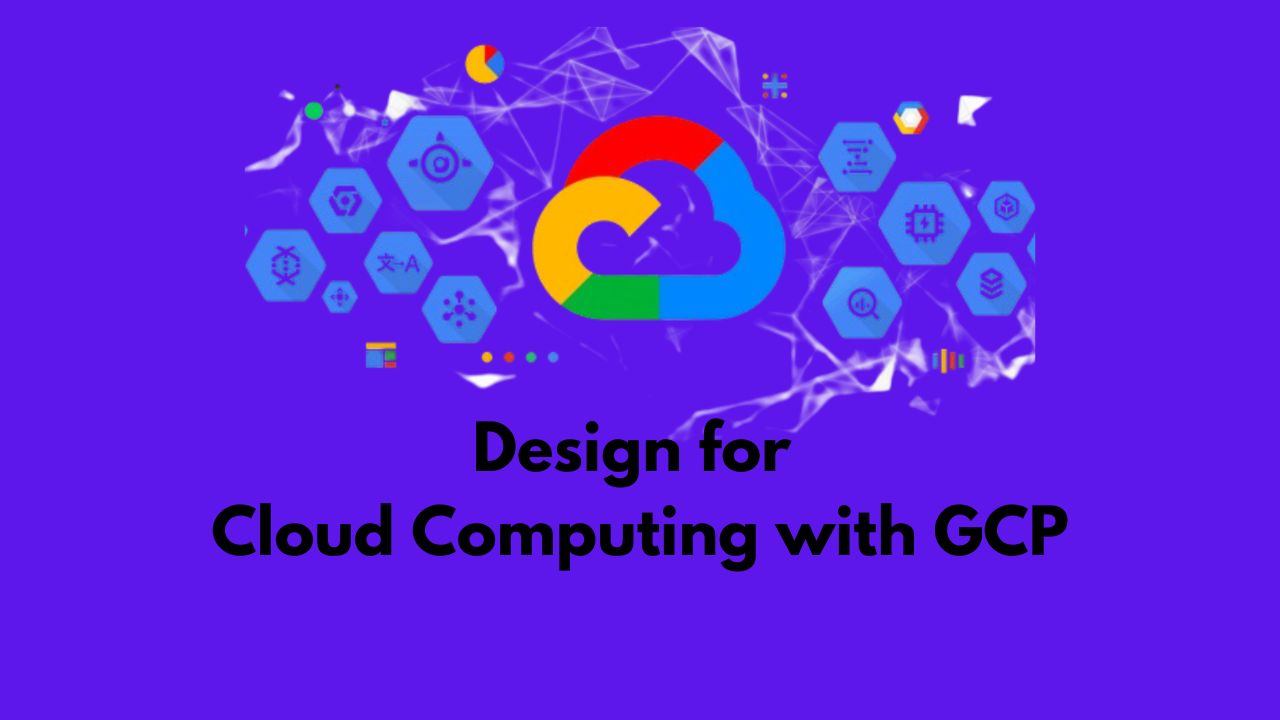
Design for Cloud Computing with GCP#
Duration: 4 weeks : - 20 Days
Pre-requisites:#
• Basic Understanding of Cloud Computing • Fundamentals of IT and Networking • Knowledge on Application development • Basic understanding of Linux and Command Line • Familiarity with DevOps concepts • Familiarity with Git
Training Program Components:#
• Daily Mentor led concept/demo session for the topics as per plan. • Hands-on assignments by associates on conceptslearnt daily. • Two Mock interviews will be conducted during the program
Course Outline#
GCP Basics and Overview#
- Introduction to Google Cloud Platform (GCP)
- Overview of GCP
- Key Features and Benefits
- GCP Products and Services
- Categories of Products (Compute, Storage, Database, Networking, etc.)
- Overview of Key Products
GCP Infrastructure#
- GCP Regions and Zones
- Understanding GCP Infrastructure
- Regions and Zones
- Data Residency and Latency Considerations
- Choosing the Right Region and Zone
- Factorsto Consider
- Regional Availability and Service Limits
Managed Services in GCP#
- Overview of Managed Services
- What are Managed Services?
- Benefits of Using Managed Services
- Key Managed Services in GCP
- Compute Engine, App Engine, Cloud Functions, Cloud Run
Google App Engine#
- Introduction to Google App Engine
- What is App Engine?
- Key Features and Benefits
- App Engine Environments
- Standard Environment vs. Flexible Environment - Developing and Deploying Applications
- Creating and Configuring Applications
- Deployment Strategies and Best Practices
Google Cloud Functions#
- Introduction to Google Cloud Functions
- What are Cloud Functions?
- Use Cases and Benefits
- Creating and Managing Cloud Functions
- Writing Functionsin Different Languages (Node.js, Python) - Deploying and Testing Functions
- Integrations with Other GCP Services
Google Cloud Pub/Sub#
- Overview of Pub/Sub
- Understanding the publisher-subscriber model - Use cases and applications
- Creating and managing topics and subscriptions - Subscribing to Messages
- Message Filtering and Ordering
- Integrating Pub/Sub with Other Services
GCP Storage#
- Cloud Storage
- Cloud SQL
- Cloud Spanner
Identity & Access Management (IAM)#
- Introduction to IAM
- What is IAM?
- Key Concepts: Roles, Permissions, Policies
- Configuring IAM Roles and Policies
- Creating and Managing Roles
- Applying IAM Policies to Resources
- Best Practices for IAM
VPC and Service Controls#
- Overview of cloud networking concepts
- What is a VPC?
- Key components of a VPC (e.g., subnets, IP ranges, routes)
- Introduction to VPC Service Controls
- What are VPC Service Controls?
- Benefits for Security and Compliance
- Configuring VPC Service Controls
- Creating and Managing Service Perimeters
- Managing Access and Data Exfiltration Protection
Google Cloud Key Management Service (KMS) & Encryption#
- Introduction to Google Cloud KMS
- What is Cloud KMS?
- Key Concepts: Key Management, Encryption
- Managing Encryption Keys
- Creating and Managing Keys
- Integrating KMS with GCP Services
Cloud Monitoring#
- Overview of Cloud Monitoring Tools
- What is Cloud Monitoring?
- Key Features and Benefits
- Using Cloud Monitoring
- Setting Up Monitoring Dashboards
- Creating Alerts and Notifications
- Integrations with Other GCP Services
Cloud Logging#
- Introduction to Cloud Logging
- What is Cloud Logging?
- Key Features and Benefits
- Managing Logs
- Collecting and Storing Logs
- Searching and Analysing Logs
- Setting Up Log-Based Alerts
- Integration with Cloud Monitoring
Containerization and Orchestration#
- Overview of Containerization
- Creating images and containers
- What is Kubernetes?
- Kubernetes Architecture
- Overview of Kubernetes Objects
Kubernetes on GCP (Google Kubernetes Engine - GKE)#
- Introduction to Kubernetes and GKE
- Key Features and Benefits of GKE
- Deploying and Managing Kubernetes Clusters
- Creating and Configuring Clusters
- Deploying Applications on GKE
- Scaling and Monitoring Kubernetes Clusters
API Management – Apigee and API Gateway#
- Overview of API Management
- What is API Management?
- Key Benefits and Use Cases
- Introduction to Apigee
- Key Features and Benefits
- Designing and Managing APIs with Apigee
- Introduction to API Gateway
- Key Features and Benefits
- Managing APIs with API Gateway
DevOps & Scaling#
- Overview of DevOps principles and practices
- Introduction to Google Cloud Platform (GCP) servicesfor DevOps
- What is DevOps?
- DevOps Practices and Benefits
- Implementing CI/CD Pipelines using Cloud Build - Source Code Management
- Artifact Management with Google Artifact Repository and Google Container Registry
- Scaling Applications
- Auto-Scaling with GCP Services
- Best Practices for Scaling and Monitoring
Cloud-Native Architecture#
- Introduction to Cloud-Native Architecture
- What is Cloud-Native?
- Key Principles and Benefits
- Components of Cloud-Native Architecture
- Microservices
- Containers and Kubernetes
- Designing Cloud-Native Applications
- Using GCP Tools and Services for Modern Development
- Integration with Cloud Functions and App Engine
- Modern Development Practices
Cloud Dataflow (ETL with Java SDK)#
- Introduction to Cloud Dataflow
- What is Cloud Dataflow?
- Use Cases for ETL
- Developing ETL Pipelines
- Overview of the Java SDK
- Building and Deploying Pipelines
- Monitoring and Managing Dataflow Jobs
Cloud Composer (Workflow Orchestration)#
- Introduction to Cloud Composer
- What is Cloud Composer?
- Use Cases and Benefits
- Creating and Managing Workflows
- Building Directed Acyclic Graphs (DAGs)
- Scheduling and Monitoring Workflows
BigQuery (Data Warehouse and Analytics)#
- Introduction to BigQuery
- What is BigQuery?
- Key Features and Benefits
- Performing Data Analysis
- Writing and Running SQL Queries
- Managing Datasets and Tables
- Integrating BigQuery with Other GCP Services
Looker (BusinessIntelligence and Reporting)#
- Introduction to Looker
- What is Looker?
- Key Features and Benefits
- Building Reports and Dashboards
- Creating Dynamic Reports
- Designing Interactive Dashboards
- Integrating Looker with BigQuery and Other Data Sources
Best Practices for GCP Usage#
- Cost Management and Optimization
- Security Best Practices
- Performance Optimization
- Monitoring and Tuning Performance
- Optimizing Resource Utilization


Comments: